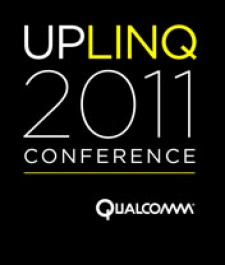It's been one of the main questions in the industry for the past 12 months, so does anyone know how developers monetise games on Android?
That was the question at one of the breakout sessions at Qualcomm's Uplinq developers conference.
"For us as Android publisher, you have OEMs, app stores, and operators, and you have to work with all three," said Markus Kassulke, CEO, HandyGames, which has over 20 games, mainly free on Android Market.
"You have to be experimental with your monetisation methods on Android. You need to be flexible and agile and ensure you're not spending too much money upfront," reckoned Alex Caccia, president at UK tools outfit Ideaworks Labs.
OEM power
Shenna Hogan, director of business development at Sony Ericsson, had a different tack.
"Freemium games have the most potential for unbranded products," she said. "The data we're seeing is that free games can have up to 20 times more downloads than paid."
She also pointed to other channels that OEMs can offer such as Sony Ericsson's own tab in the Android Market.
"One of our development partners had a 50 percent boost in downloads using this," she revealed.
Light in the tunnel
Yet despite the difficulties in the current market, there is hope.
"Our sales on Android are really taking off strongly," said Baudouin Corman, sales and marketing director at Gameloft US, which is a big supporter of premium priced Android titles.
"Certainly iOS is a more mature market, but let's compare it with Android Market in six months time and see where we are."
He didn't give further details about numbers or which titles were performing well however.
"It's a complex market, but all the key players in the value chain want good content to promote their business," Caccia pointed out.
Seven years back luck
The problem of different Android devices and OS versions remains a massive issue however, even with the new tools such as device black listing offered by Google.
"The real problem with fragmentation is that you get bad user feedback if you don't support every handsets as well as you can," said Kassulke.
"Users will always specify how well games work on their specific device. They don't talk about Android phones but about a Desire," agreed Corman.
"You need to test and optimise the top 20 Android devices against the past couple of firmware releases. Focus on them," commented Linda Lemieux, director of development and QA, at VMC.
Yet Caccia also pointed out that as well as bad fragmentation, there is also good fragmentation, which enables device differentiation, such as Sony Ericsson's Xperia Play gaming device.
Uplinq 2011: Gameloft says its Android game sales are 'taking off really strongly'
#uplinq Not just about freemium apparently






















